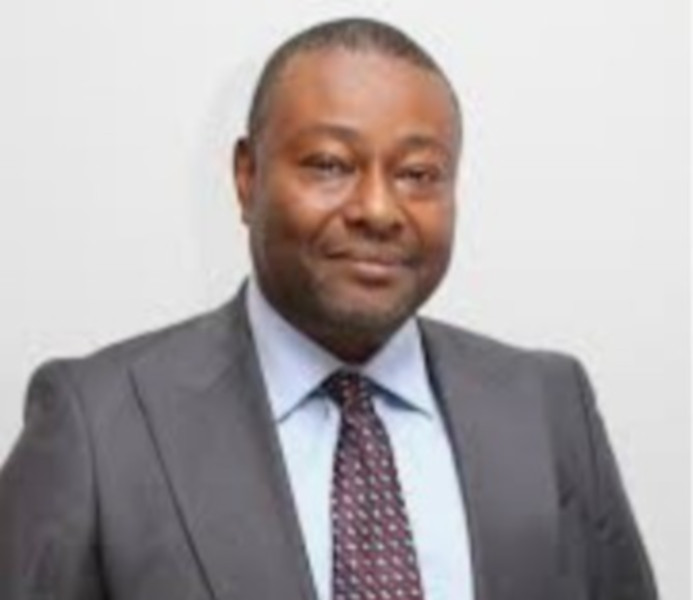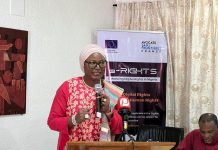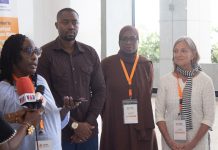The National Human Rights Commission (NHRC) has, in its 2024 State of Human Rights report, urged the Ministry of Basic and Secondary Education to ensure that access to education for children with disabilities is mainstreamed to promote inclusive education.
Below is the full commission’s report on the rights of Persons with Disabilities:
“The Gambia has made notable progress in advancing the rights of persons with disabilities, particularly with the enactment of the Persons with Disabilities Act 2021. Furthermore, the establishment of the National Advisory Council for Persons with Disabilities in 2023 has reinforced the State’s commitment to implementing the PWD Act, as well as supporting the Ministry of Gender, Children, and Social Welfare.
Additionally, the development of the National Disability Strategy provides a comprehensive framework to guide the nation in developing effective strategies for the inclusion and protection of persons with disabilities.
However, significant challenges remain in the promotion and protection of the rights of persons with disabilities, especially the effective implementation and enforcement of the Persons with Disabilities Act 2021.
One of the primary concerns is the limited accessibility of public buildings, which are often not designed to accommodate the needs of persons with disabilities, thus hindering their full participation in society.
The Persons with Disabilities Act 2021, recognises, in Section 33, the rights of children with disabilities to access mainstream education and for their educational needs to be provided without discrimination. However, children with disabilities face significant barriers to accessing mainstream services.
Access to educational structures and facilities, including school infrastructures, remains a significant challenge. While the Government promotes inclusive 57 education for all children, mainstream schools do not specifically cater to their needs, significantly limiting their access to education and heightening their risk of being left behind. There are only 3 specialist schools that cater for children with disabilities, including visual, hearing, or learning disabilities. Furthermore, they are all found in the urban areas. The lack of universal designs in the transportation system in The Gambia hinders access to education for children with disabilities.
Moreover, accessibility of national media broadcasts remains a critical issue, particularly for persons with hearing impairments. Currently, aside from QTV, sign language interpretation is not provided during news broadcasts, leaving persons who are hard of hearing without access to crucial information, especially during news hours and some national events.
Employment opportunities for persons with disabilities are limited in both the public and private sectors. There is a lack of accessible infrastructure and assistive technologies. Many workplaces are not equipped to accommodate individuals with physical or mobility disabilities. This lack of accessible infrastructure and assistive technologies makes it difficult for persons with disabilities to perform their job tasks effectively.
People with disabilities are significantly underrepresented in elected positions and other public decision-making bodies, including independent institutions.
The Local Government Act 2002 (as amended) mandates that each Local Council must appoint a representative from the community of persons with disabilities. However, out of the 137 councillors across the eight Local Government Authorities, only eight are individuals with 58 disabilities.
Those with disabilities face substantial barriers in exercising their right to participate in public affairs, including discrimination, stigmatization, and the widespread belief that they lack leadership ability. Running for political office often requires substantial financial resources, which poses an additional challenge for persons with disabilities who are generally among the most economically disadvantaged in the society.
Regarding the reporting obligations on the rights of persons with disabilities, The Gambia has not submitted its initial or periodic reports to the Committee on the Rights of Persons with Disabilities, as required by article 35(1) and (2) of the CRPD, since acceding to the Convention in 2015.
“Addressing these gaps requires a sustained commitment to enhancing accessibility, inclusion, and equal participation for persons with disabilities across all sectors of society,” the commission reported.
It therefore made the following recommendations:
1. The Ministry of Information, Media and Broadcasting Services to ensure that State broadcasters cater for sign language interpretation for those with hearing impairments.
2. The Ministry of Gender, Children and Social Welfare to provide adequate financial and technical support to the National Advisory Council to effectively carry out its functions.
3. The Ministry of Basic and Secondary Education to ensure that access to education for children with disabilities is mainstreamed to promote inclusive education.
4. The Ministry of Transport, Works and Infrastructure to ensure that public buildings and transportation are accessible to persons with disabilities.
5. Public institutions to adopt and implement the CRPD budget compliant guidelines developed by the NHRC.
6. The Government, through the Ministry of Gender, Children and Social Welfare, to submit its initial and periodic reports to the Committee on the Rights of Persons with Disabilities.
7. The Ministry of Gender, Children and Social Welfare to work with The Gambia Federation of the Disabled to ensure better protection of children with disabilities.



















